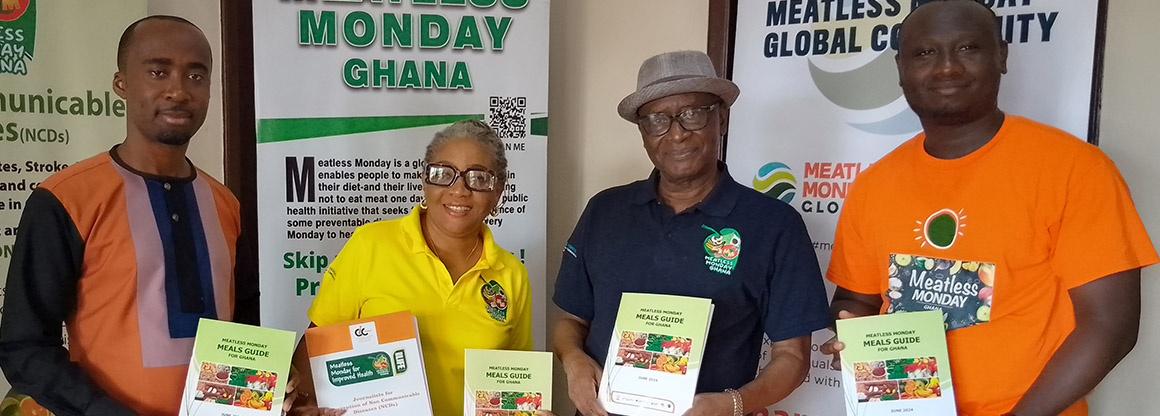Program Overview: Young people in Ghana are known to eat fewer vegetables and fruits – key components of healthy eating – than their counterparts in other African countries. A study carried out in collaboration with the Ghana Education Service concluded that only 28% of young people (ages 15-18) in Ghana eat vegetables and fruits, which compares very unfavorably to Kenya (94%), Uganda (88%), Nigeria (73%), and South Africa (68%).
Objective: Encourage Ghanaian students to eat more plant-based foods, using Meatless Monday as the vehicle.
Process: The University of Ghana is selective when it comes to allowing external partners to implement programs within the institution. Meatless Monday Ghana assured its university partners that the program was simply aimed at promoting healthier and more sustainable eating habits among students. The Dean of Student Affairs, Rosina Kyerematen, recognized the potential benefits for student health and environmental sustainability. Along with the Students Representative Council, she facilitated numerous discussions, highlighting the success of Meatless Monday and its alignment with the university's commitment to student welfare.
Meatless Monday Ghana then presented a seminar on the benefits of the campaign to a seminar organized for leaders of the school’s student organizations. The leaders were enthusiastic, which set the tone for engaging the student body in Meatless Monday.
“Meatless Monday promises us young people the opportunity to live healthily into adulthood. Let’s grab this opportunity tightly,” said Student Council President Frank Tsikata.
Outcome: The program was now set for action. The most popular social media platforms among the students – WhatsApp, Facebook, X, and Instagram – were identified and their leaders and influencers oriented. These platforms were used to carry Meatless Monday messages to students through short videos, newsletters, and Meatless Monday reminders and pledge cards. The university granted permission was also granted to conduct educational discussions on the university’s radio station, Radio Universe.
In all, the campaign reaches 27 student associations through the social media platforms and ultimately, the 80,000-student population of the University of Ghana. Other parts of the university community being reached include teachers, staff, and members of an educational union with 10,000 members.
“Meatless Monday is a great initiative, and we would align it with the university’s commitment to students’ welfare,” Kyerematen said.
Other Ghanaian universities could follow this process to achieve Meatless Monday success: Start with the dean of student affairs, engage the student council, consult the leadership of student organizations, and build consensus on objectives and actions before implementation.



